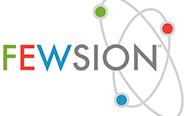 Check out this publication from the team working on the FEWSION for Community Resilience initiative, including CSTL’s Sean Ryan and Nena Bloom
Check out this publication from the team working on the FEWSION for Community Resilience initiative, including CSTL’s Sean Ryan and Nena Bloom
Frontiers in Environmental Science, posted September 23, 2020
Release of the article by Emma Hibbett, Richard Rushforth, Elisabeth Roberts, Sean Ryan, Kyle Pfeiffer, Nena Bloom, Benjamin L Ruddell, published in Frontiers in Environmental Science, section Science and Environmental Communication. doi: 10.3389/fenvs.2020.571614
“Food-energy-water (FEW) resources are necessary for the function of multiple socio-natural systems. Understanding the synergies and trade-offs in the FEW nexus, and how these interconnections impact earth’s systems, is critical to ensure adequate access to these resources in the future; an essential component for achieving the Sustainable Development Goals (Scanlon et al., 2017).
Although, over the last decade, the identification of FEW nexus complexities has increased at a global (Intergovernmental Panel on Climate Change [IPCC], 2018; D’Odorico et al., 2018), national (Lant et al., 2019), and city scale (Rushforth and Ruddell, 2018), these findings are yet to be adequately translated into “on the ground” action due a lack of technical and political capacity (Weitz et al., 2017).
Specifically, local FEW systems have been overlooked in these analyses (Scanlon et al., 2017; Lant et al., 2019), thus leaving small and medium towns vulnerable due to a lack of data and inadequate FEW system management.
Building on 3 years of field-tested FEW nexus research in the Ruddell Lab, we argue that participatory citizen science projects, such as our FEWSION for Community Resilience initiative, can bridge the data-policy gaps that exist within local FEW system management by:
- providing last mile data on the FEW system, and
- translating local data into evidence-based solutions at a grassroots level.
Thus, we present a broadly applicable framework and call to action for local scale participatory citizen science to solve complex FEW nexus issues at a local, regional, and national scale.”
To read the original post and learn more about FEWSION, visit the FEWSION website.
Read the full article on Frontiers in Environmental Science HERE.